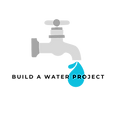Inefficient Water Management Systems and its effect on Water Efficiency
- Asiya Siddiqui
- Mar 24
- 2 min read
By: Danwoo Kim
March 3, 2025
Introduction:
With water being one of the most abundant and vital resources for human survival, it's no wonder that humans have developed various water management systems to regulate this resource. While the efficiency of water usage and the water system has vastly improved over the years, there are still issues that reduce the productivity of how water is distributed and allocated to underserved communities. Such issues stem from poor infrastructure, inadequate storage, and inefficient irrigation systems. These ultimately contribute to major water wastage, which reduces the vital resource for those in need.

The Problem with Inefficient Water Management:
The demand for freshwater globally is expected to exceed 40% by 2030. If water demand exceeds the rate at which it can be replenished, major problems will occur, including sickness, famine, and riots. Nearly ¼ of treated water is lost during distribution, and only 2.4% of wastewater is reused. But these slim percentages can be translated into millions of gallons of water lost for thousands of families in need.
In addition to this, 25% of the world’s freshwater is used to produce foods that are not even eaten [2]. As irrigation systems lose effectiveness due to inefficient water management systems, the wasted water negatively affects both food and water availability for people worldwide. With 1 in 3 people worldwide without access to safe drinking water [3] and 1 in 11 people facing hunger [1], the problem is only growing.
Potential Solutions:
Solutions can include improving infrastructure by upgrading pipelines, reservoirs, and treatment plants, along with strong maintenance to make sure no leaks or erosion pollute the water, enabling more water to be used. Water distribution systems can be enhanced to ensure more efficient distribution to impoverished communities. Efficient irrigation practices such as drip irrigation and sprinkler systems can minimize wasted water while still maintaining healthy crops, and the amount of water necessary to optimize crop growth should be evaluated to maintain the greatest ratio of water used for crops and the number of crops reaped.
Of course, water conservation policies can regulate water usage and make more water available to communities worldwide, allowing reservoirs to fill up more instead of being in danger of depletion. Wasteful water policies such as these will exponentially get worse due to a lack of consideration towards them. Future generations should be able to live without fear of mankind's most vital resource running dry. So we must take preventative measures to ensure efficient water utilization.
Support our cause!
References:
1. Action Against Hunger. (2024). World Hunger Facts & Statistics. Action against Hunger. https://www.actionagainsthunger.org/the-hunger-crisis/world-hunger-facts/
2. Poorly managed water. (2023). Environment. https://environment.ec.europa.eu/topics/water/water-wise-eu/poorly-managed-water_en
3. World Health Organization. (2019, June 18). 1 in 3 People Globally Do Not Have Access to Safe Drinking Water – UNICEF, WHO. World Health Organization; World Health Organization. https://www.who.int/news/item/18-06-2019-1-in-3-people-globally-do-not-have-access-to-safe-drinking-water-unicef-who
.png)
Comments